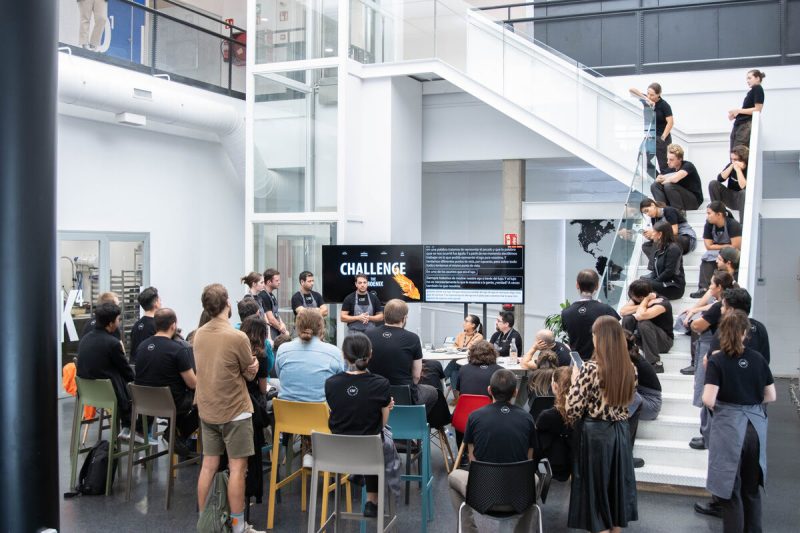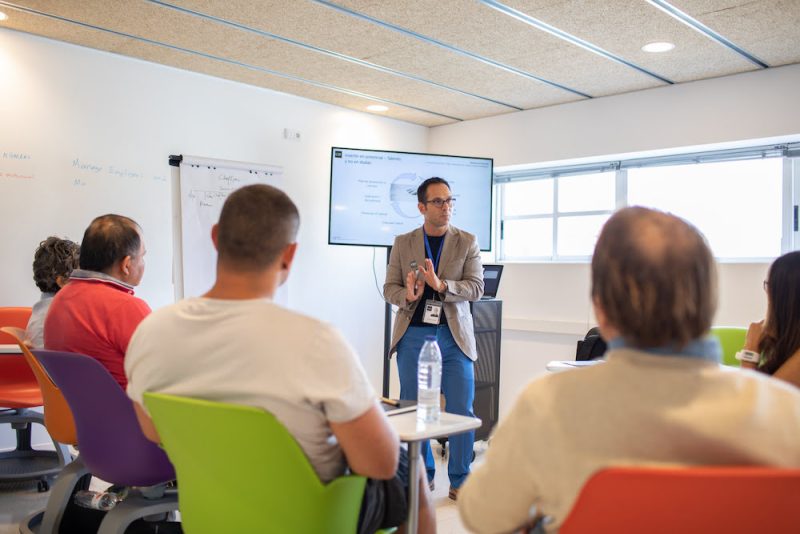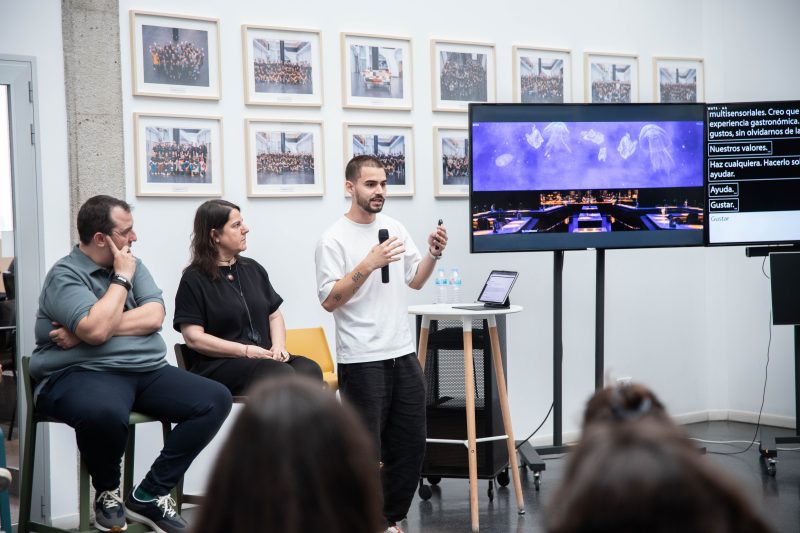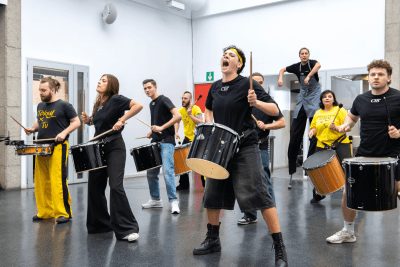At the threshold of the twenty-first century, we find ourselves at a technological crossroads where Artificial Intelligence (AI) is not just a futuristic concept but a tangible reality that permeates various aspects of our daily lives. Now, this unprecedented advancement leads us to a crucial question in the educational realm: How should our schools adapt so that future generations can confront artificial intelligence?

The answer to this question is complex and multifaceted. It requires a review not only of curricula and teaching methods but also of our perspective on what it means to educate. AI brings with it unique challenges and opportunities. On one hand, we are faced with the task of preparing students for jobs that do not yet exist, using technologies that are constantly evolving. On the other hand, we have the opportunity to harness artificial intelligence in education in ways that were previously unimaginable, personalizing learning and providing students with tools to solve complex problems.
The purpose of this article is not only to address how AI can transform education but also how education can and should evolve to embrace and shape this transformation. Furthermore, we must prepare our educators for this transition. Teachers need resources, training, and support to guide students through this new technological landscape. Collaboration between educational institutions, AI experts, and industry will be key to developing a teaching approach that is relevant, up-to-date, and effective.
Ultimately, this is not just an educational challenge but an opportunity to reimagine education in a world where AI is not a distant tool but a close ally in the learning process. Through this adaptation, we can ensure that our students are not only proficient in AI but also informed and ethical citizens in an era defined by advanced technology.

How could AI be integrated into education?
In an increasingly AI-shaped world, it is imperative that educational institutions integrate this discipline into their curricula. It is not only about teaching students how AI works but also about how to interact with it, understand its impact, and use it ethically and effectively.
Integration of AI across educational levels
- Primary Education: At this stage, the focus should be on introducing students to the concept of AI in a playful and accessible manner. This can be achieved through stories, games, and simple projects that demonstrate how AI is used in everyday life. For example, activities explaining how voice assistants like Siri or Alexa work, or simple robotics projects teaching basic programming and automation concepts.
- Secondary Education: Here, the curriculum can delve into the technical aspects of AI. This would include basic programming concepts, algorithm understanding, and an introduction to robotics. Students could engage in projects where they program their own simple AI systems, such as a chatbot or a small autonomous robot. It is also important to begin discussing the ethical and social implications of AI, preparing students to think critically about these technologies.
- Pre-University Education: At this level, students should have the opportunity to explore more advanced aspects of AI. This would include courses on machine learning, natural language processing, and computer vision. Projects could involve developing AI solutions for real-world problems, encouraging innovation and critical thinking. Additionally, ethical debates and social implications of AI should be an integral part of the curriculum.
Examples of AI content in education
- Fundamentals of AI: A unit covering the basic principles of how intelligent machines work, suitable for secondary school students.
- Programming and Robotics: Practical modules where students learn to program and build simple robots, suitable for secondary and pre-university education levels.
- Ethics and Society in the AI Era: A course for pre-university students addressing issues such as algorithmic bias, data privacy, and the impact of AI on employment.
- Applied AI Projects: Projects where pre-university students apply their AI knowledge to solve real-world problems, such as developing an AI application to improve sustainability in their school or community.
Integrating AI into the school curriculum is more than just teaching a new technology; it is preparing students for a future where AI will be an integral part of their personal and professional lives. We are equipping the next generation not only to adapt to a constantly changing world but also to be leaders and creators of that change.
What skills and aptitudes can be developed?
Technical skills such as:
- Programming and Coding: At the core of learning AI is the ability to understand and write code. Schools should offer courses that teach programming languages relevant to AI, such as Python or Java. These courses should go beyond basic syntax, covering how to apply these languages to create AI algorithms and models.
- Data Analytics: AI relies heavily on data analysis. Students must learn how to collect, process and analyze data, understanding how this data can be used to train AI models. This includes teaching them about databases, statistics, and data visualization.
- Fundamentals of Machine Learning and Neural Networks: Provide a basic understanding of how machines learn and process information. This may include hands-on projects where students use machine learning tools to perform simple tasks, such as pattern recognition or classification.
Lateral Skills such as:
- Critical Thinking and Problem Solving: In an era where AI can perform many analytical tasks, the ability to think critically and solve problems creatively becomes even more valuable. Students should be encouraged to question, analyze and synthesize information, and to apply these processes in solving complex problems.
- Creativity and Innovation: AI opens up new possibilities for creativity. Students should be encouraged to explore how AI can be a tool in art making, design and other forms of creative expression. This fosters a mindset where AI is seen not only as a technical tool, but also as a means for innovation.
- Adaptability and Continuous Learning: Given the speed at which AI evolves, the ability to adapt and continue learning throughout life is crucial. Students must be prepared for a world where change is constant and the ability to learn and adapt quickly is essential for success.
- Collaboration and Teamwork: AI often requires a collaborative approach. Fostering teamwork skills and interdisciplinary collaboration is critical, as AI projects often involve people with different skills and perspectives.

What tools to use to apply AI in education?
Incorporating Artificial Intelligence (AI) tools into the educational environment offers unique opportunities to enhance both teaching and learning. These tools can personalize the learning experience, provide additional support to students and teachers, and open new pathways for exploration and discovery.
Personalizing Learning through AI
- Adaptive Learning Platforms: Adaptive learning platforms use AI to tailor teaching material to the individual needs of each student. Based on the student’s performance and progress, these systems adjust the difficulty of tasks, the type of content, and the pace of learning. For example, a platform could present more challenging concepts to a student who quickly masters the material or review fundamental concepts with those who need more practice.
- Intelligent Tutoring Software: These programs provide additional support to students outside the classroom. Using AI, these virtual tutors can offer personalized explanations, additional practice, and instant feedback on assignments and tests. This not only helps students improve in specific areas but also allows them to learn at their own pace.
- Predictive Analytics to Identify Learning Needs: AI tools can analyze student performance data to identify trends and patterns. This can help educators identify students who may be at risk of falling behind and offer early, personalized interventions.
Improving Teaching and Classroom Management through AI
- Automation of Administrative Tasks: AI can automate tasks such as grading exams and managing student records, freeing teachers to focus more on teaching and less on administration. Additionally, it can provide detailed class performance analysis, helping educators adjust their teaching strategies.
- AI Assistants in the Classroom: These assistants can help teachers during lessons by providing additional information, suggesting learning activities, and answering common student questions. This creates a more interactive and enriching classroom environment.
- Enrichment of Educational Content: AI can generate interactive and engaging educational content, such as simulations and educational games, which can help illustrate complex concepts in a more understandable and memorable way.
Challenges of AI in Education
While AI tools offer significant benefits, they also present challenges. Equity in access to technology is a key concern, as not all students may have the same availability of devices and internet connection. Additionally, it is crucial to ensure that these tools do not replace essential human interaction in the learning process but rather complement it.
The use of AI tools in education has the potential to radically transform both teaching and learning. However, it is essential to approach these developments with a balanced approach, ensuring that technology serves as a complement to the educational experience, not as a substitute. With careful and thoughtful implementation, AI tools can play a crucial role in creating a more inclusive, interactive, and enriching learning environment.
Another challenge lies in ensuring that education in this technology includes a solid foundation in ethics and responsibility. In teaching about AI, we cannot limit ourselves to its technical aspects; we must also address the moral and social implications of its development and use.Are you more curious? We encourage you to read this other post in which we talk about AI in the future of gastronomy, and what opportunities and challenges its application will pose in the restaurant world.








